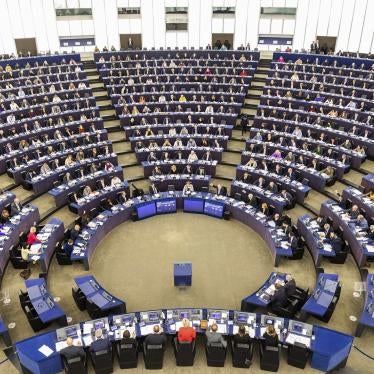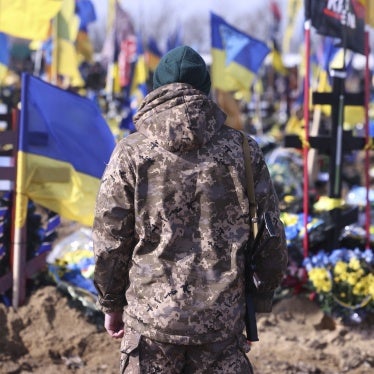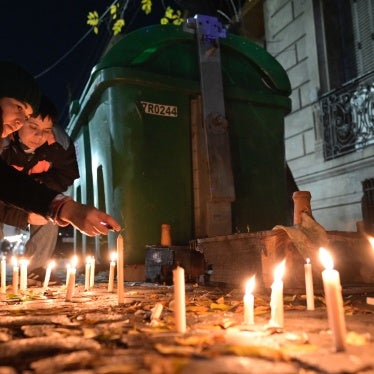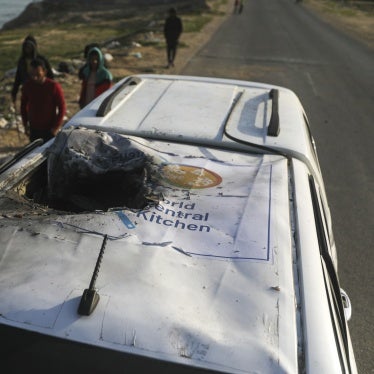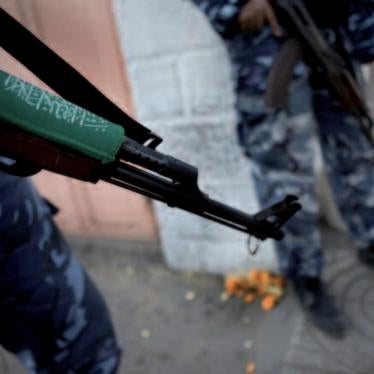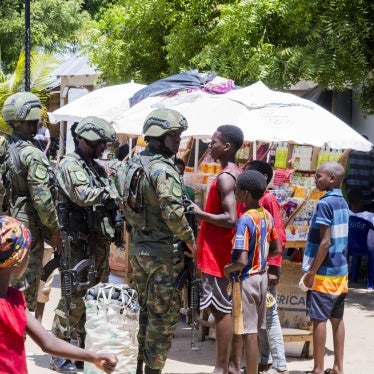(Madrid) - Human Rights Watch calls on the NATO heads of state meeting in Madrid to order NATO to apprehend the persons indicted for war crimes in Bosnia and Hercegovina. Of the seventy-six people from all sides publicly indicted so far, only ten have been taken into custody. If peace is to endure beyond the planned withdrawal of NATO troops in June 1998, the indicted war criminals must be apprehended.
Most of the persons indicted for war crimes in the former Yugoslavia - including Radovan Karadzic and Ratko Mladic - enjoy not only freedom but power: they obstruct the return of refugees, suppress dissent, and use violence and intimidation to enforce their vision of ethnically "pure" states. While western leaders - including, most recently, NATO Secretary-General Javier Solana - often argue that arresting indicted war criminals is the responsibility of the region's governments, not international troops, all the unarrested have taken refuge in areas controlled by military forces of their own ethnicity, which, in turn, refuse to arrest them - despite considerable financial pressure to do so.
"NATO knows where these men are and has the legal duty and the means to apprehend them, but Western political leaders refuse to order their arrest." said Kenneth Roth, Executive Director of Human Rights Watch. "Unless these men are apprehended, they will continue to undermine the peace process, prevent national reconciliation, and sabotage this rare opportunity to build an international system of justice."
Although NATO has a broad and unqualified legal obligation to assist in the apprehension of war criminals, political leaders have so far given NATO troops instructions only to arrest suspects whom they "encounter." But even this limited mandate has proven farcical, as NATO troops go out of their way to avoid any such encounter, let alone to arrange "encounters" on terms that might be favorable for arrest. Well over half of those indicted have been located by journalists and human rights workers. A number are living openly in the same towns where they committed ethnically motivated murder, rape, mutilation, and expulsions.
The risk that arrests could invite retaliation against NATO troops and other international workers in Bosnia is both containable, as the recent arrest of Dokmanovic has shown, and necessary to avoid greater risks to the peace process and to the prospects for a system of international justice. NATO troops and other U.N. and OSCE workers have already practiced emergency evacuation plans which can be extended to private organizations. It was precisely to resist such blackmail that the lightly armed UNPROFOR peacekeeping troops were replaced by the well armed NATO forces. In the past, when NATO troops have credibly threatened force in the face of such blackmail, Bosnian Serb troops (the main source of threats) have quickly backed down.
The only force capable of making these arrests is NATO - either on its own or by providing essential back-up to a specially created commando unit. To pass apprehension off as a "police function," as some have done, is to decide that no arrests will be made. This position reflects a disappointing lack of vision in not recognizing the importance of upholding international law against such atrocities. Since the Cold War's conclusion, the most common reason for deploying NATO troops has been to mitigate the humanitarian hardship caused by highly abusive forces. A functioning international system of justice is an essential tool for deterring such atrocities in the future. Officials who contemplate mass murder are likely to think twice if they believe they may be brought to justice for their crimes.
Human Rights Watch also announced the launch of a world-wide "Arrest Now" campaign timed to coincide with the second anniversary of the fall of the so-called "safe area" of Srebrenica. Press conferences are scheduled in the next week in London, Paris, Sarajevo and Washington to announce the release of letters to political leaders signed by hundreds of labor, religious, womens' and human rights groups, as well as by prominent individuals in each country.
Srebrenica has become a symbol of the atrocities committed during the war in the former Yugoslavia and of the inaction of the international community. It is time for the international community, after having failed for far too long to stop the killing in Bosnia and Hercegovina, to ensure at least that the killers are brought to justice.
